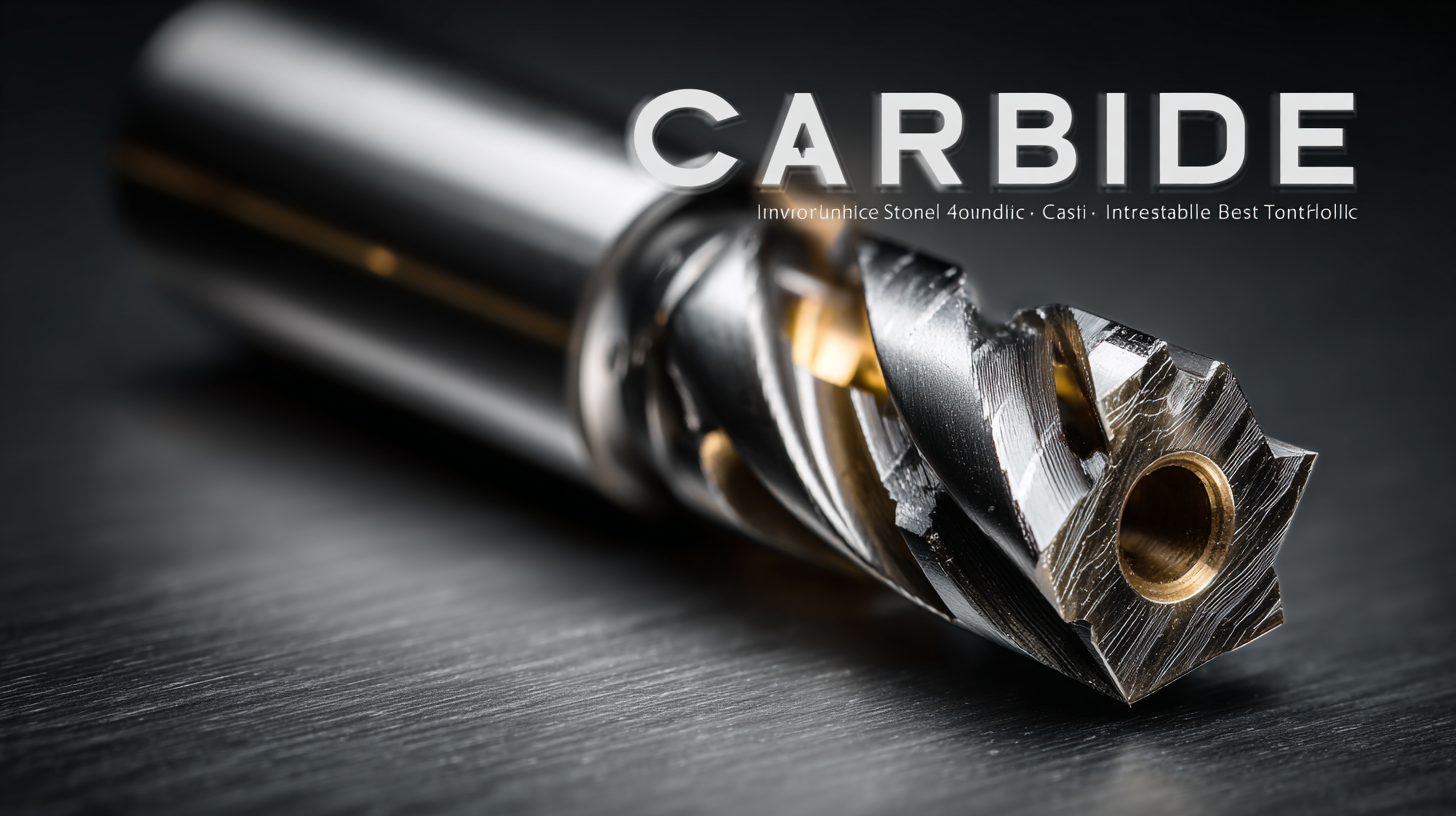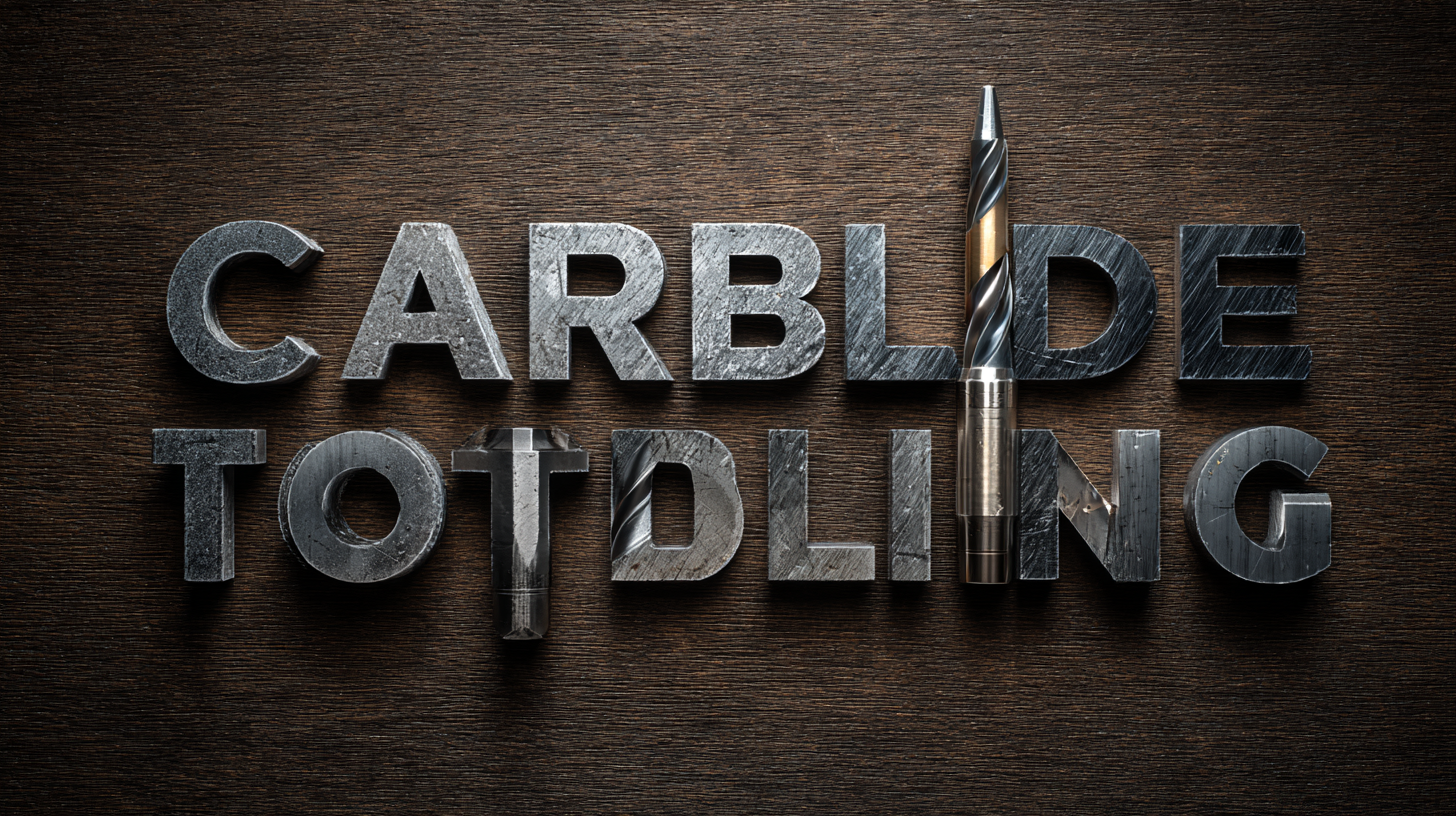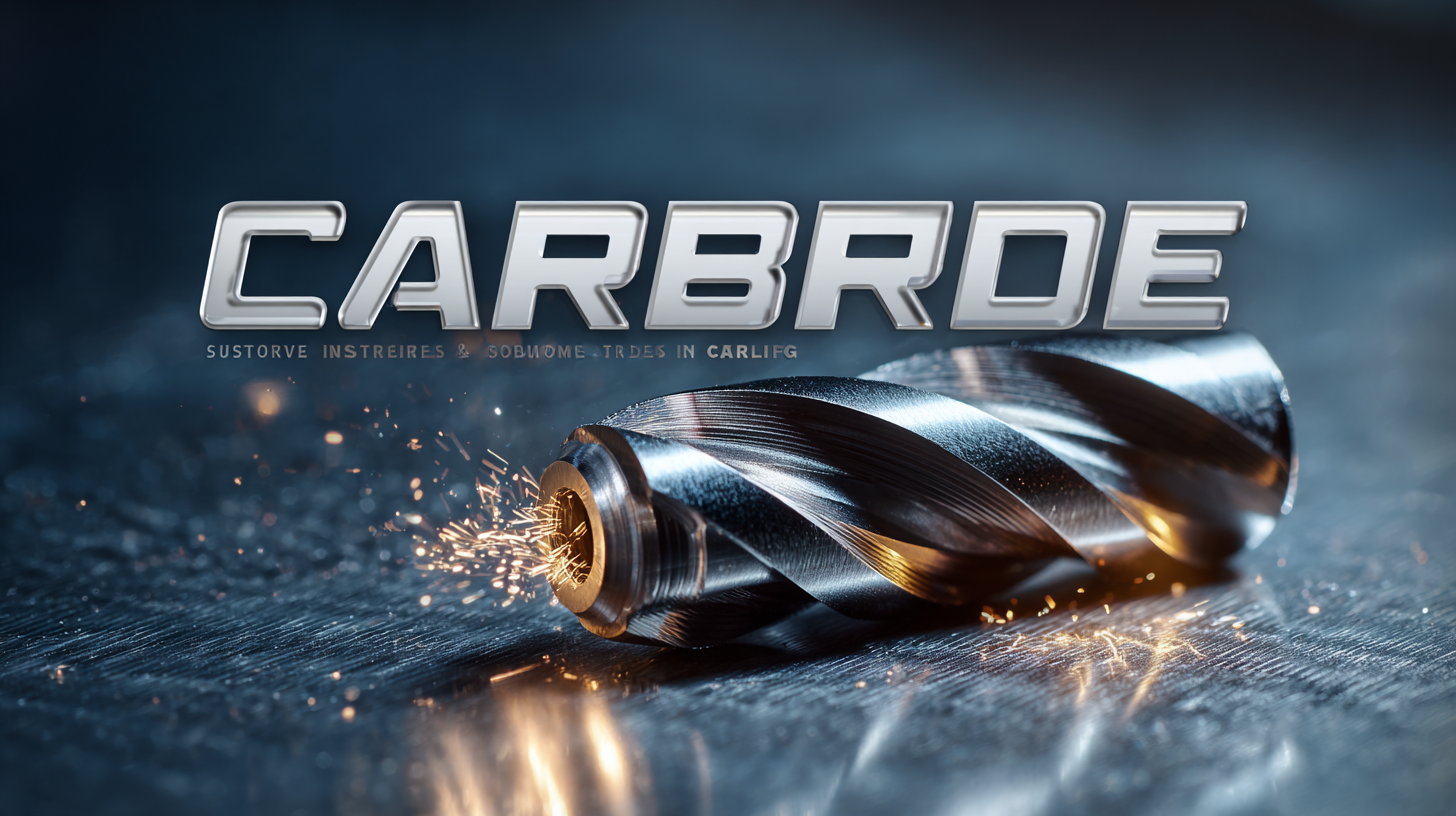Innovative Solutions for Enhancing Efficiency with Best Custom Carbide Tooling
In today's competitive manufacturing landscape, the demand for precision and efficiency has never been higher, particularly in the realm of custom carbide tooling. Recent reports indicate that the global carbide tooling market is expected to reach approximately $15 billion by 2026, driven by a surge in automation and advanced machining techniques. The unique properties of custom carbide tooling—such as durability, high performance, and adaptability—make it an essential component for industries aiming to enhance operational efficiency. Furthermore, the incorporation of innovative solutions in tooling design can significantly reduce waste and improve production speeds, ultimately leading to cost savings and better resource management. As businesses seek to navigate the complexities of import and export certifications relevant to this industry, understanding how to effectively implement custom carbide tooling becomes crucial for achieving optimized results in manufacturing processes.

Benefits of Custom Carbide Tooling Over Standard Options
Custom carbide tooling offers significant advantages over standard options, particularly in terms of efficiency and performance. One of the main benefits is the ability to tailor tools to specific applications, ensuring better fit and functionality. This customization allows manufacturers to optimize their machining processes, reduce cycle times, and improve the quality of the finished product. Custom tooling can also enhance tool life by utilizing materials and designs that are specifically suited to the demands of the task, resulting in lower replacement costs and less downtime.
When choosing custom carbide tooling, consider the specific requirements of your project. Here are some tips: First, assess the materials you are working with and select carbide grades that offer the best wear resistance and toughness for your applications. Second, involve your tooling supplier in the design process; their expertise can provide insights into optimizing geometries for improved performance. Lastly, keep communication open with your machining team to understand how custom tooling impacts workflow, allowing for further refinement and efficiency gains.
Utilizing custom carbide tooling not only boosts productivity but also positions your business to respond quickly to changing market demands. By investing in tailored solutions, you set the stage for innovative approaches to manufacturing that ultimately drive success.
Innovative Solutions for Enhancing Efficiency with Best Custom Carbide Tooling - Benefits of Custom Carbide Tooling Over Standard Options
| Feature | Custom Carbide Tooling | Standard Tooling |
|---|---|---|
| Material Quality | High-grade carbide for enhanced durability | Standard quality materials |
| Customization | Tailored to specific applications | Limited designs available |
| Performance | Optimized for specific cutting tasks | General performance |
| Cost Efficiency | Higher initial investment, potential for long-term savings | Lower upfront cost but may require more frequent replacements |
| Lead Time | Potentially longer due to customization | Typically faster delivery |
| Waste Reduction | Minimized material waste | Potentially higher waste during production |
| Setup Time | Typically lower due to optimization | May require more adjustments |
Key Features of High-Quality Carbide Tools Worth Comparing
When evaluating high-quality carbide tooling, it is essential to focus on features that enhance performance and efficiency. The carbide cutting tool insert market is projected to grow significantly, highlighting the increasing demand for innovative solutions in manufacturing. Key features such as wear resistance, cutting precision, and thermal stability play a crucial role in determining the effectiveness of these tools. For instance, advancements in coating technologies have led to better wear characteristics, allowing tools to maintain their cutting performance over extended periods.
Tips for choosing the right carbide tools include assessing the substrate microstructure, which can greatly influence the tool’s cutting capabilities. Moreover, consider the specific requirements of your project; tools designed for hard turning may require different coatings than those used for milling softer materials. Regularly comparing the latest products on the market can help you stay ahead of the curve, ensuring you select cutting-edge tools that enhance efficiency and output in your operations. By focusing on these key features, manufacturers can significantly improve their productivity and streamline their processes.
Cost-Effectiveness: Custom Solutions vs. Off-the-Shelf Products
In the realm of manufacturing, the choice between custom carbide tooling and off-the-shelf products significantly impacts cost-effectiveness and operational efficiency. Custom solutions are tailored to meet specific application requirements, often resulting in enhanced performance and longevity. According to industry data, businesses employing custom tooling report up to a 20% decrease in waste and a 15% increase in production speed compared to those using standard tools.

Furthermore, the application of advanced technologies such as generative AI is transforming the landscape of custom tooling development. For instance, integrating AI-driven design processes can reduce the lead time for tool creation by nearly 30%, allowing companies to quickly adapt to changes in market demand. The ability to automate and optimize tooling design not only cuts costs but also fosters innovation, positioning businesses to maintain a competitive edge in a fast-evolving industry.
Ultimately, investing in custom carbide tooling not only streamlines operations but also aligns with broader trends observed across sectors, where tailored solutions are noted to drive efficiency and cost savings. As noted in various industry reports, companies that leverage custom tools not only reduce operational expenses but also enhance overall productivity, creating a robust foundation for sustainable growth.
Performance Metrics: Evaluating Efficiency in Tooling Choices
In the realm of manufacturing, performance metrics play a crucial role in evaluating the efficiency of tooling choices, especially when it comes to custom carbide tooling. By analyzing key performance indicators such as tool longevity, material removal rate, and surface finish quality, manufacturers can make informed decisions that significantly impact productivity. Understanding how these metrics interact can lead to optimized machining processes, reducing downtime and enhancing overall output.
Furthermore, the adaptation of advanced analytics and real-time monitoring systems allows companies to assess the effectiveness of their tooling in dynamic environments. By tracking performance in actual operating conditions, manufacturers can identify patterns and areas for improvement. This data-driven approach ensures that the custom carbide tools not only meet but exceed industry standards, driving innovation and efficiency within the production line. Ultimately, the focus on detailed performance metrics transforms how businesses approach tooling decisions, paving the way for smarter investments and superior product quality.
Innovative Solutions for Enhancing Efficiency with Custom Carbide Tooling
Real-World Applications: Success Stories with Custom Carbide Solutions
In the realm of manufacturing, custom carbide tooling has proven to be a game-changer in enhancing operational efficiency. Companies across various sectors have successfully leveraged these tailored solutions to address unique challenges. For instance, a study by the National Tooling and Machining Association highlighted that businesses using custom carbide tools reported a 20% increase in production speed and a significant reduction in waste material. This shift not only leads to cost savings but also contributes to more sustainable practices within the industry.
One real-world success story comes from a leading aerospace manufacturer that implemented custom carbide drill bits specifically designed for lightweight composites. The result? A remarkable 30% improvement in tool life compared to standard offerings, allowing them to meet increasing production demands without sacrificing quality. Similarly, automotive manufacturers utilizing tailored carbide inserts have experienced enhanced precision and durability, leading to lower rework rates and ultimately faster turnaround times.
**Tip:** When considering custom carbide solutions, engage with a tooling specialist early in the design process to align your tooling with material properties and machining techniques.
Another valuable tip is to regularly evaluate the performance of your carbide tools in operation. Implementing a feedback loop can help identify areas for improvement and ensure that you are maximizing efficiency through ongoing refinements to your tooling strategy.


